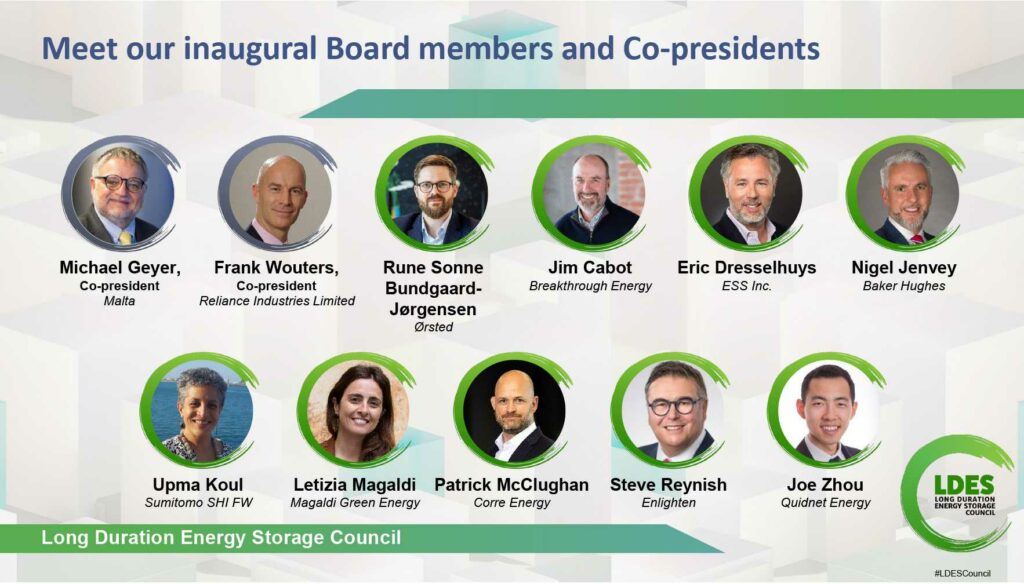
The Long Duration Energy Storage Council, the organisation formed last year to push for the global deployment of eight-hour-plus duration storage technologies, has elected its first board of directors.
The CEO-led organisation was launched at COP26 in November and has now incorporated in Brussels, Belgium, and appointed its leadership team.
Enjoy 12 months of exclusive analysis
- Regular insight and analysis of the industry’s biggest developments
- In-depth interviews with the industry’s leading figures
- Annual digital subscription to the PV Tech Power journal
- Discounts on Solar Media’s portfolio of events, in-person and virtual
The board of directors was nominated by the Council’s membership and is headed by two co-presidents. The first is Michael Geyer, senior technical advisor for utility scale power storage at pumped-heat energy storage (PHES) technology company Malta Inc. The second is Frank Wouters, senior vice president energy transition for the massive Indian conglomerate Reliance Industries.
The rest of the board is made up of:
- Rune Sonne Bundgaard-Jørgensen of Denmark-based power company Ørsted
- Jim Cabot of Bill Gates-founded investment group Breakthrough Energy
- Eric Dresselhuys of iron flow battery company ESS INC
- Nigel Jenvey of energy infrastructure equipment manufacturer Baker Hughes
- Upma Koul of heavy industrial group Sumitomo SHI FW
- Letizia Magaldi of Italian thermal energy storage startup Magaldi Green Energy
- Patrick McClughan of hydrogen-based storage group Corre Energy
- Steve Reynish of sodium-based battery company Enlighten
- Joe Zhou of geomechanical pumped storage (GPS) technology provider Quidnet Energy
Shortly after being formed in November, the Long Duration Energy Storage Council published its first report. Its headline figure was the estimation that deployment of 85TWh to 140TWh of long duration energy storage (LDES) by 2040 could be enough to keep the world on track to limit global warming to 1.5°C as outlined in the Paris Agreement.
The Council is made up of 19 anchor members comprised of a mix of large corporations with interest in renewable energy, from tech giants Google and Microsoft to fossil fuel and mining groups BP and Rio Tinto. It also has 28 technology members who provide LDES solutions, including those named on the board.






